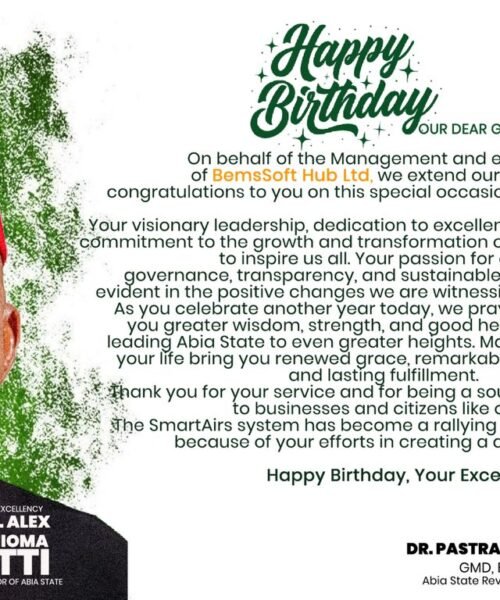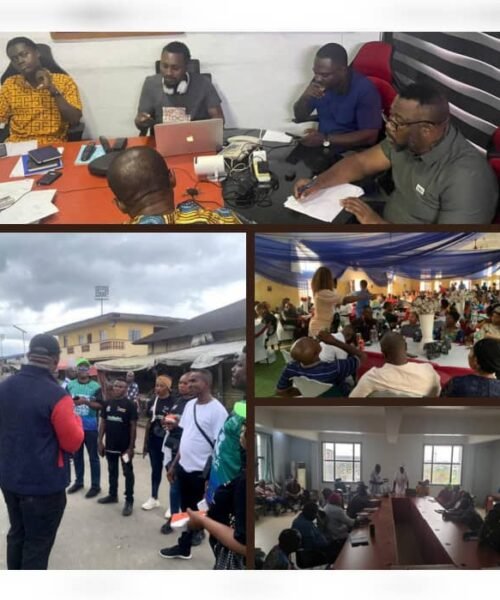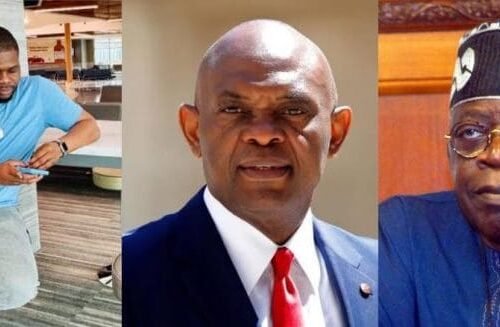Filling Stations Hike Petrol Price Amid Dangote-NNPCL Crude Dispute
Filling stations in Lagos, Nigeria’s commercial capital city, have increased the price of a litre of petrol from ₦860 to ₦930, making consumers pay at least ₦70 more than what it used to cost them to buy a litre of the premium commodity days ago.
The price increase has also become effective in parts of the country like Abuja and major northern cities with oil outlets now selling a litre of petrol between ₦950 to ₦970, depending on the filling stations. This represented a sharp increase of about ₦70 to ₦90 from the initial price of ₦880 last week.

Our correspondents in Lagos and Abuja observed that filling stations like MRS Oil & Gas, Ardova Plc, Heyden, and others with special agreements with the Dangote Petroleum Refinery have adjusted their pumps to the new price.
Petrol stations like Matrix Energy, North-West Petroleum, Total Energies, Mobil, Bovas, Enyo, amongst others also followed suit.

The new price regime followed an announcement by Dangote Refinery temporarily halting the sale of petroleum products in Naira.
“This decision is necessary to avoid a mismatch between our sales proceeds and our crude oil purchase obligations, which are currently denominated in US dollars,” the company said in a statement earlier in March 2025.

The $20bn refinery based in Lagos said the sales of its products in Naira have exceeded the value of Naira-denominated crude it has received from the Nigerian National Petroleum Company Limited (NNPCL).
“As a result, we must temporarily adjust our sales currency to align with our crude procurement currency,” the company explained.
The refinery said it remained committed to serving the Nigerian market and would resume the sale of its product to the local market in Naira as soon as it received crude cargoes from the NNPCL in Naira.
The announcement by the refinery came amid its price war with the NNPCL.
On February 26, 2025, the $20bn refinery owned by Africa’s richest man and industrialist Aliko Dangote, slashed the ex-depot price of petrol from ₦890 to ₦825 per litre.

Under the new arrangement, customers purchase the premium commodity at ₦860 per litre at selected outlets in Lagos, ₦870 in the South-West, ₦880 in the North, and ₦890 in the South-South and South-East. Dangote has also reduced the price of diesel in recent times.
Almost immediately, the NNPCL reduced its retail price from ₦945 to ₦860 in Lagos, with a similar price reduction reflection at NNPCL outlets in other states of the Federation.
The Dangote Refinery was commissioned in May 2023.
Some analysts and industry experts have hailed the price war, saying it will “erode abnormal profit” enjoyed by capitalists but petrol marketers who still import the premium commodity have lamented the loss they incurred as a result of the sudden price drop.
As part of moves to reduce the strain on the US dollars, and guarantee price stability of petroleum products, the Federal Executive Council (FEC) in July 2024, directed the NNPCL to sell crude oil to Dangote Refinery and other local refineries in naira and not in United States’ greenback.
In March 2025, the NNPCL said its Naira-denominated crude sales agreement with the Dangote Refinery was structured for six months with March 2025 as the expiration date.
The state company, however, said that talks were on to replace the contract and that over 48 million barrels of crude oil have been made available to Dangote Refinery since October 2024 under the Naira-denominated arrangement.
The NNPCL also said it had made over 84 million barrels of crude oil available to the private refinery since it commenced operations in 2023.
Nigeria, Africa’s most populous nation, faces energy challenges, with all its state-owned refineries non-operational for decades until 2024. The country was heavily reliant on imported refined petroleum products, with the state-run NNPCL being the major importer of the essential commodities.
The Port Harcourt Refinery is one of the state-owned plants which recently came back on stream.
Fuel queues are commonplace in the country. Prices of petrol more than quadrupled since the removal of subsidy in May 2023 by President Bola Tinubu, from around ₦200/litre to about ₦1,000/litre, compounding the woes of the citizens who power their vehicles, and generating sets with petrol, no thanks to decades-long epileptic electricity supply.
Last December, the billionaire industrialist commenced operations at the facility situated in Lagos with 350,000 barrels a day. The refinery, which was initially bogged by regulatory battles, hopes to achieve its full capacity of 650,000 barrels per day by the end of the year. The refinery has begun the supply of diesel and aviation fuel to marketers in the country and now petrol.







